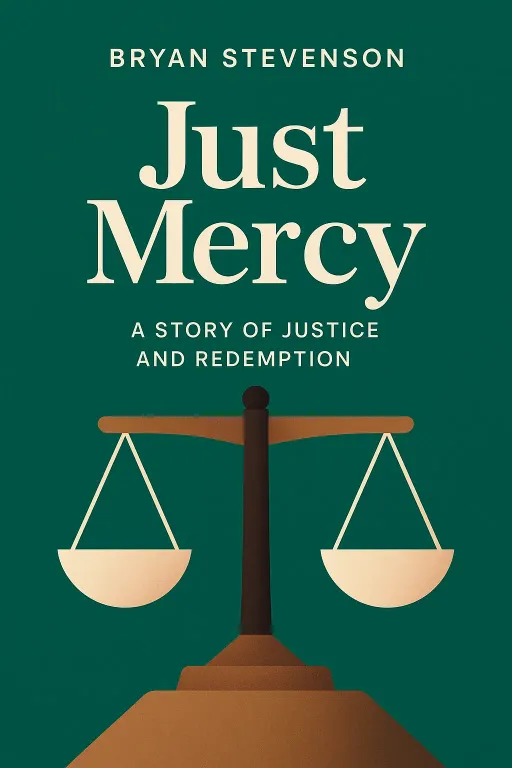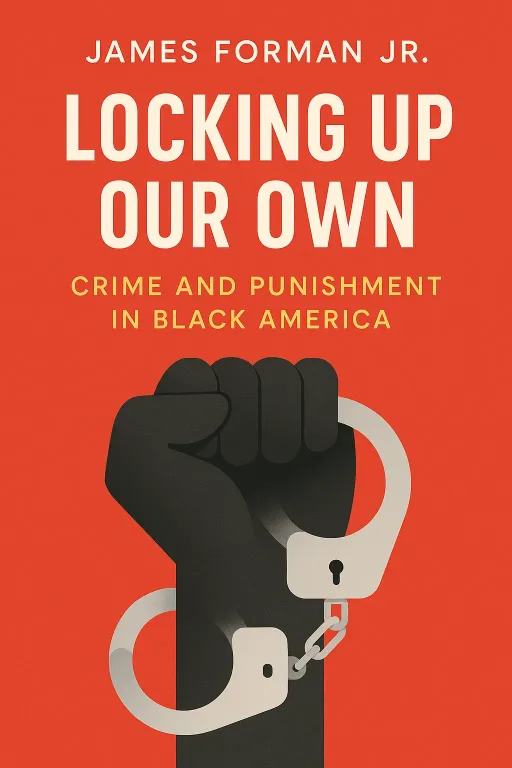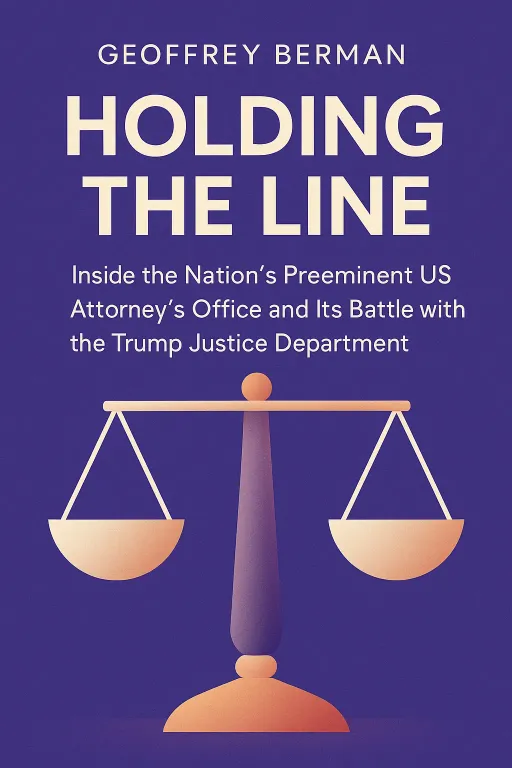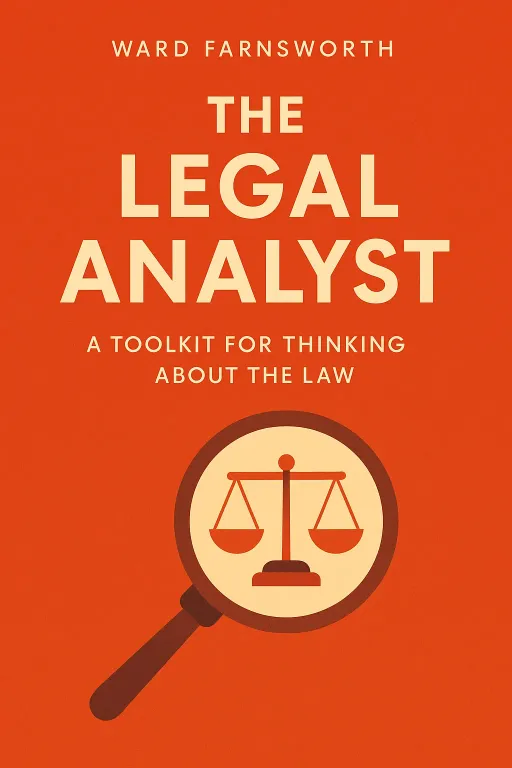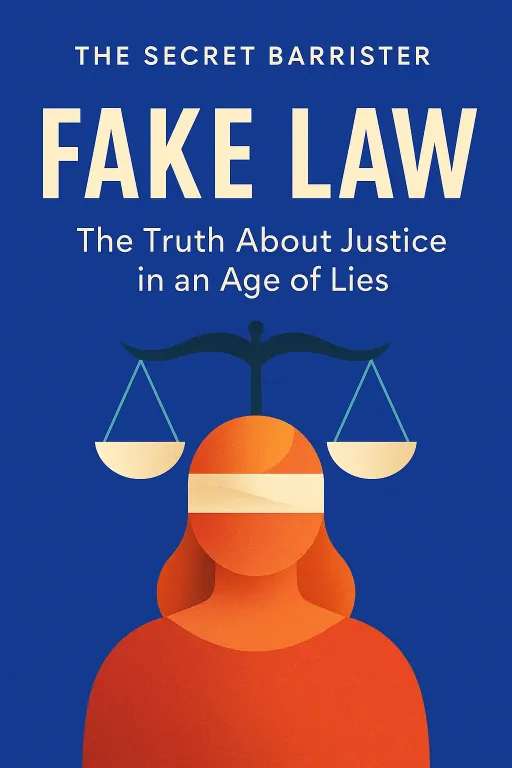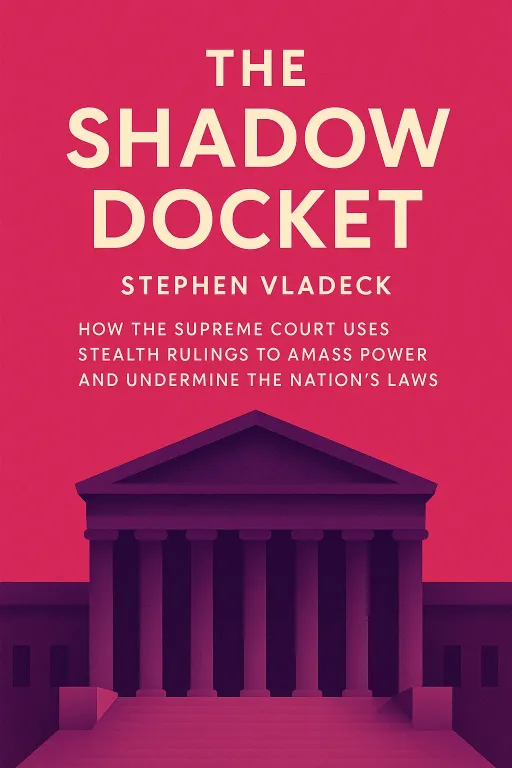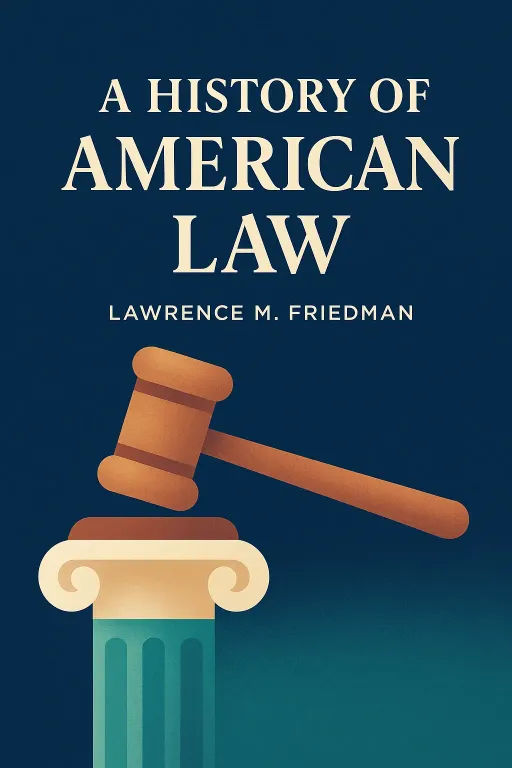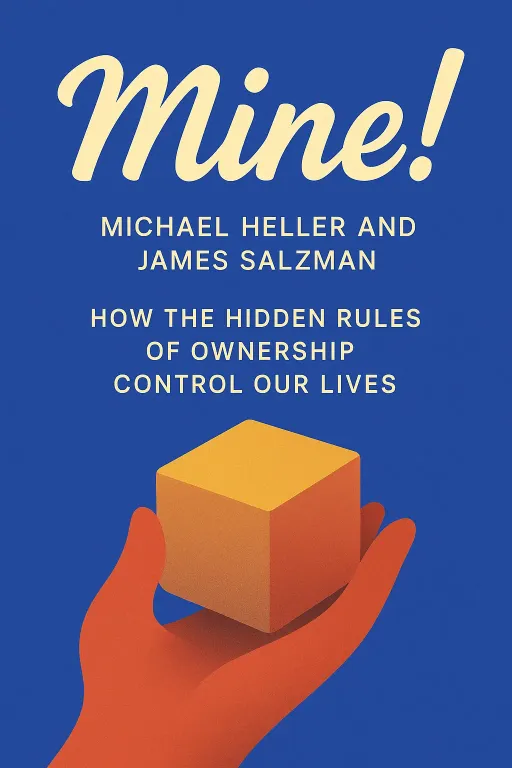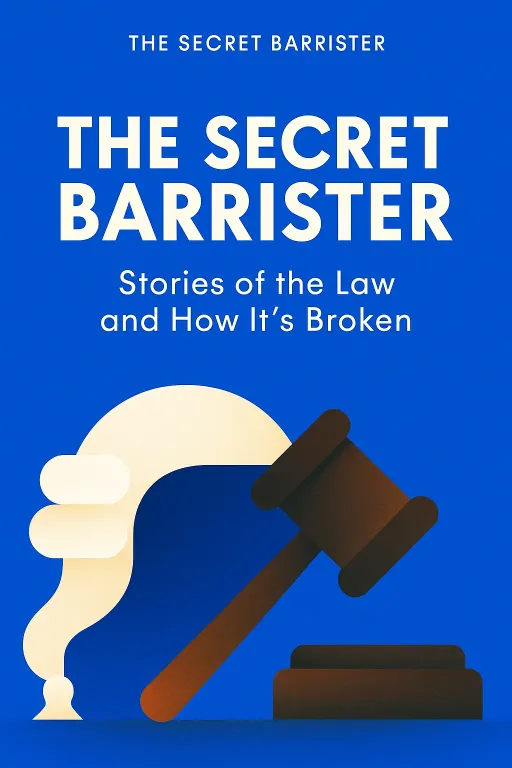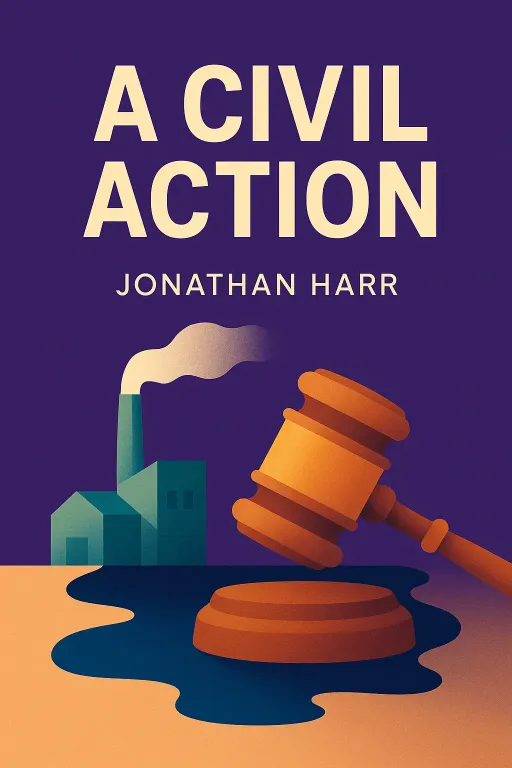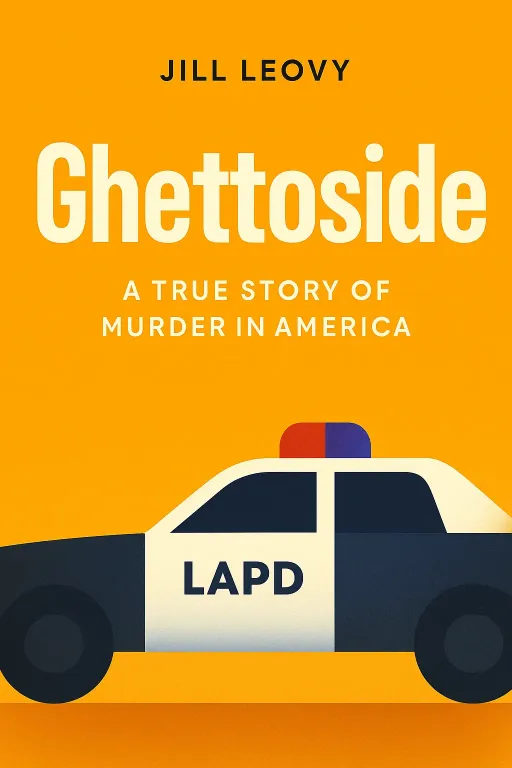
Making Black Lives Expensive
10 minA True Story of Murder in America
Golden Hook & Introduction
SECTION
Michael: What if I told you that for a time, it was statistically safer to be a U.S. soldier deployed in the Iraq War than to be a young Black man in Los Angeles County? That’s not a metaphor. That’s a fact. Kevin: Whoa. Hold on. That can't be right. Safer in a literal war zone? I find that very hard to believe. Michael: It's a horrifying reality, and it's the central question at the heart of Jill Leovy's incredible book, Ghettoside: A True Story of Murder in America. And what makes this book so powerful is that Leovy wasn't an academic studying this from a distance. She was a crime reporter for the Los Angeles Times for over a decade, embedded in these communities, covering hundreds of murders. Kevin: So this isn't theory, this is firsthand observation from the front lines. Michael: Exactly. She created a project called "The Homicide Report" just to track every single killing in L.A. County because she saw they were being ignored. The book is the result of that deep, immersive, and often heartbreaking work. It was widely acclaimed, a finalist for the National Book Critics Circle Award, because it tells a story most of America chooses to look away from. Kevin: And that story seems to start with that unbelievable statistic. How is that even possible? Michael: It’s possible because of the phenomenon Leovy gives a name to: "Ghettoside." And it's not just a place on a map. It's a condition.
The Plague of Impunity
SECTION
Kevin: A condition? What do you mean by that? Michael: Leovy defines it as a space where the state's most basic promise—the monopoly on violence, the promise of protection—has collapsed. In most of America, if someone is murdered, we expect the police to investigate and find the killer. There's a process. There's a belief in the system. In the ghettoside, that belief is gone, because the system has been absent for generations. Kevin: So people just get away with murder? Is that what we're talking about? Michael: In staggering numbers. Leovy’s data showed that while the national homicide clearance rate, meaning solved cases, hovers around 60%, the rate for homicides of Black men in areas like South L.A. was as low as 38%. Think about that. Your odds of getting away with murder are better than a coin flip. Kevin: That is insane. It’s a literal plague of impunity. Why? Is it lack of evidence? Are the cases just too hard to solve? Michael: That's the common assumption, but Leovy argues it's something deeper. To show this, she follows a detective named John Skaggs. And Skaggs is this fascinating, almost mythical figure in the book. He's a white detective working in the heart of Watts, and he has this personal obsession. Kevin: Which is what? Michael: His mission, in his own words, was to "make Black lives expensive." Kevin: Wow. What a way to put it. What did he mean by that? Michael: He meant that the system treated them as cheap. When a murder happened, the response was often a shrug. It was seen as just another gang killing, another knucklehead, part of the scenery. Skaggs believed the only way to make a life matter in the eyes of the state was to pour immense resources, time, and relentless energy into solving that person's murder. To make it costly for the system to ignore and for the killer to have committed. Kevin: So his personal mission was just... to do the basic job of a homicide detective? Was that really so rare? Michael: That's the tragic heart of it. Yes, it was rare. Leovy tells the story of Skaggs investigating the murder of a young man named Dovon Harris. Dovon was the son of a woman named Barbara Pritchett, a central figure in the book. He was killed, and the case was going nowhere. It was just another file. But Skaggs takes it on, and he just refuses to let it go cold. He works it for months, chasing down whispers, re-interviewing reluctant witnesses, treating it like the most important case in the world. Kevin: Because in his view, it was. Michael: Exactly. He understood that every unsolved murder sends a message to the community: your lives don't matter. Your government will not protect you. And when that message is sent over and over, for decades, it creates a profound and dangerous vacuum. Kevin: It’s interesting, though. The book has been praised for its empathy, but some critics have pointed out that it focuses heavily on the police, sometimes framing them as the heroes in this story. Is Skaggs meant to be seen as the exception, or is Leovy making a broader point about what policing should be? Michael: I think it's the latter. She's not saying all cops are like Skaggs. Far from it. She's using him as a living, breathing example of what happens when the system actually works as intended. He’s the control group. His success in solving cases that others dismissed proves that these murders are solvable. The failure isn't a lack of clues; it's a lack of will. Kevin: A lack of will from the institution. And you said that creates a vacuum. What rushes in to fill it? Michael: That's where things get even more complicated. When the official system of justice disappears, something else has to take its place. Leovy calls this the "shadow system."
The Shadow System
SECTION
Kevin: The shadow system. That sounds ominous. Like a parallel government or something. Michael: It's a perfect way to describe it. It's a competing legal system with its own courts, its own laws, and its own brutal enforcement. The foundational law of the shadow system is: you do not talk to the police. Ever. "Snitching" isn't just frowned upon; it's often a capital offense, punishable by death. Kevin: And this isn't just some abstract code of honor, right? It's a practical response. Michael: It's a tragically rational response. Leovy presents a compelling case for this. If you live in a neighborhood where calling 911 might get you labeled a snitch, putting your family in danger, and the police likely won't solve the crime anyway, what's your incentive to cooperate? The risk is immense, and the reward—justice—is a long shot at best. Kevin: So it's like a failed state within a city. If the official government can't or won't protect you, you look for protection elsewhere. In some places, that's a local warlord. Here, it's the gang, and the only "law" you can rely on is retaliation. Michael: Precisely. Leovy tells the story of what she calls "The Circumstantial Case." A young man is murdered in a drive-by shooting, in broad daylight. The detectives arrive, and they know that on that street, everyone knows who did it. The information is there. But when they try to talk to people, they hit a wall of silence. Not just silence, but hostility. Kevin: Because talking to the police is breaking the law of the shadow system. Michael: And it's a law that's enforced much more reliably than the state's. The book is filled with stories of witnesses being threatened, intimidated, or even killed. Leovy describes the immense challenge for detectives. They're not just fighting a killer; they're fighting an entire alternative legal structure that actively works to undermine them. Kevin: How does a detective even begin to work in that environment? You can't just offer witness protection, can you? I feel like that's the solution we always see in movies. Michael: And Leovy shows how that's largely a myth in this context. The witness relocation programs are underfunded, bureaucratic, and often ineffective. They might move you to another poor neighborhood a few miles away, where your old enemies can still find you. You lose your job, your community, your entire life, all for a system you have no reason to trust. Kevin: So you're trapped. You can cooperate with the police and risk death, or you can stay silent and live in a world where murderers walk free. That's an impossible choice. Michael: It is. And it creates these heartbreaking moral dilemmas. Leovy follows another detective, Nathan Kouri, who becomes deeply, personally invested in the welfare of his witnesses. He's not just trying to get a conviction; he's trying to keep these people alive, navigating their fear and trauma, because he knows the system he represents has failed them so many times before. Kevin: It's fascinating that Leovy, a white journalist, is the one telling this story. That's a point of controversy for some readers, the idea of an outsider narrating the experience of these Black communities. But it sounds like her focus isn't on explaining the community to us, but on explaining the systemic failure of our institutions to the community. Michael: That's a perfect way to put it. She's holding a mirror up to the official world—to the police departments, the city halls, the courts—and showing them the direct consequences of their neglect. The book’s power comes from its relentless focus on the mechanics of that failure. It’s not a book about Black culture; it’s a book about the failure of American justice.
Synthesis & Takeaways
SECTION
Kevin: So when you put it all together, the "plague of impunity" and the "shadow system" are two sides of the same coin. They're a cause and an effect. Michael: Exactly. The state's failure to provide justice directly creates the conditions for street justice to thrive. Leovy's ultimate argument, the deep insight of the book, is that the epidemic of so-called Black-on-Black violence is not a failure of Black America. It's a failure of American justice. The violence is a symptom of lawlessness, but that lawlessness was imposed from the outside, by a system that for centuries has refused to value Black lives as equal to white lives. Kevin: It completely reframes the public conversation. The debate is so often stuck in a simplistic binary of 'more policing' versus 'less policing.' But Leovy's work suggests the real issue is the kind of justice being delivered. Or not delivered. Michael: Right. It's not about aggressive, stop-and-frisk style policing, which often harms communities. It's about the patient, relentless, and respectful work of solving the most serious crime of all. It’s about delivering on the state’s most fundamental promise. When that happens, as with a detective like Skaggs, the shadow system begins to lose its power. People start to believe again. Kevin: It makes you wonder, what does justice actually look like on the ground, day to day, and who in our society truly gets to receive it? It’s a question that goes far beyond Los Angeles. We'd love to hear what you all think about this. Does this resonate with your own communities or experiences? Let us know. Michael: This is Aibrary, signing off.
